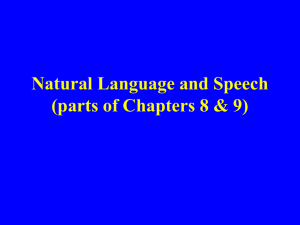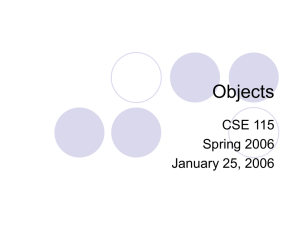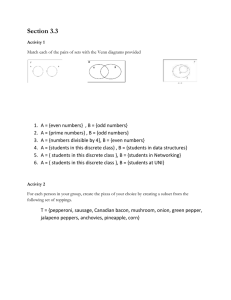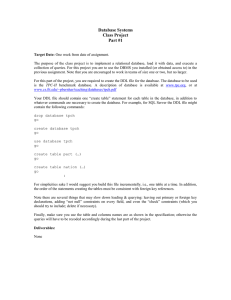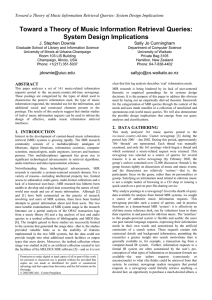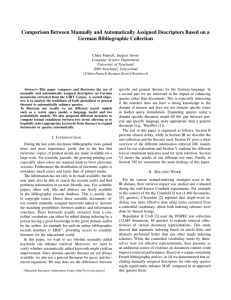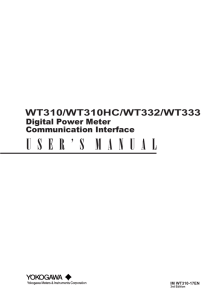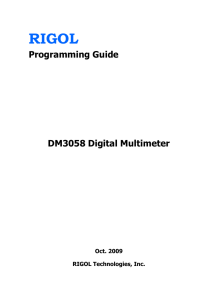Natural Language and Speech
advertisement
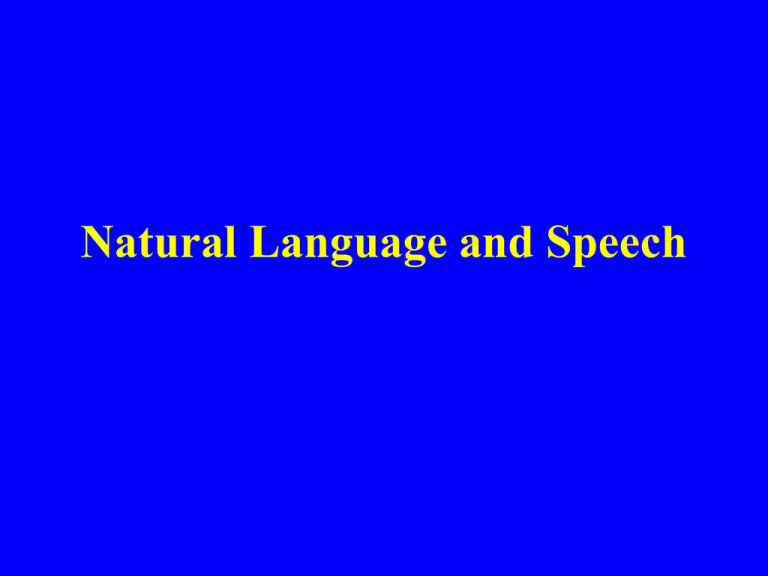
Natural Language and Speech Natural Language in Computing • Use of human languages – Translation – Commands to computer – Queries – Text Database Searching – Text generation – Games Commands to Computer • From computer-oriented to domain oriented • May not be more efficient than selection • Speech recognition may help Natural Language Queries • Limited form of commands to computer • Actions able to be requested are database queries (searches) • Experienced users shorthand • Progress is being made Text Database Searching • DB contains text as main content • Common goal is retrieval of relevant records using natural language question • Meaning vs matching • Statistical • Pre-processing • Information retrieval contests • Information Push, E-mail filtering Natural Language Text Generation • Output in text, frequently from data • Generation of poems and stories • Conversational systems Games • Command based games Speech Recognition, Digitization and Generation • Speech recognition progress is slow • Challenges – background noise, speaker variation • Drawbacks – human memory use • Benefits – accommodation of disabilities, environment/task requirements • Growth – now many products Discrete Word Recognition • Sentences spoken is slow deliberate manner – with words being discrete entities, rather than run together (continuous) • Not tolerable for most people • Discrete word recognition is easy • Continuous speech recognition is harder Speech Generation • Very feasible – done all the time • Can be annoying / noisy • Valuable for handicapped • Completely computer generated vs human sounds pieced together vs stored words When to Use Speech • Message is simple • Message is short • Message will not be referred to later • Message deals with events in time • Message requires an immediate response • Visual channels of communication are overloaded • Environment is unsuitable for transmission of visual info • User must be free to move around End Speech and Natural Language
